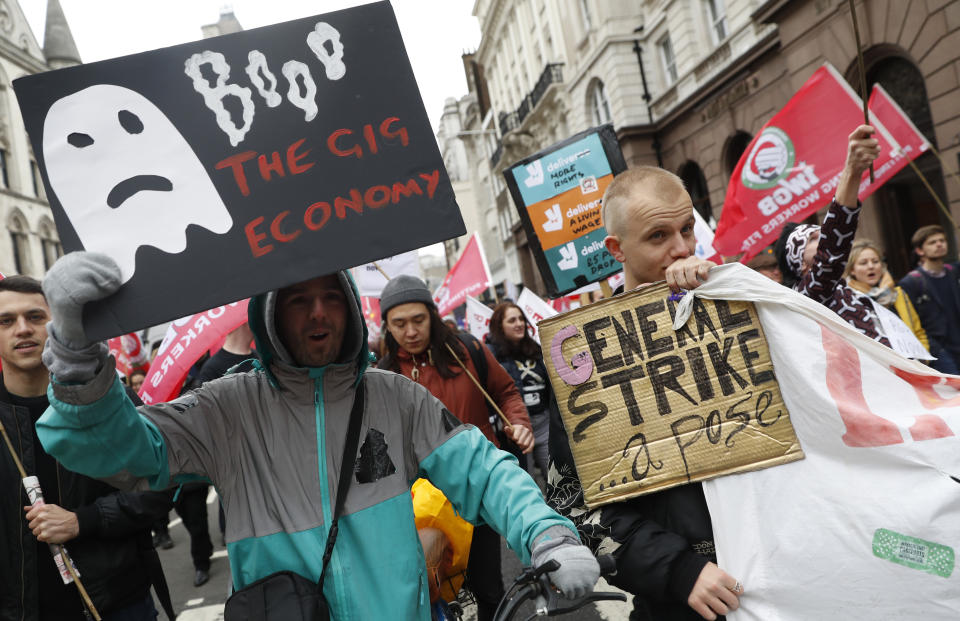UK gig economy workers 'treated like disposable labour'

The number of workers in the “gig economy” in the UK has doubled in three years, a trade union survey suggests.
Britain’s top trade union leader claimed such workers on short-term, freelance or part-time contracts were too often denied legal rights and “treated like disposable labour.”
A survey by researchers at the University of Hertfordshire for the Trades Union Congress (TUC) suggests almost one in 10 working-age adults now works in such roles in the so-called gig economy. Just three years ago, the number was estimated at one in 20.
Sectors where the gig economy is most conspicuous include taxi driving and food deliveries, as well as cleaning, repairs, office and design work.
Younger workers were most likely to be working in such roles.
READ MORE: Ford to slash 12,000 jobs across Europe as factories closed
One in five surveyed said they had to check or be alerted digitally if work was available, and one in four had to use an app or website to record their work.
Supporters of the gig economy suggest many workers enjoy the greater flexibility over their hours, and that it helps firms limit overheads and easily adapt their services to variable consumer demand.
But critics say the insecurity is dangerous and difficult for workers, leaving their finances in a precarious position and limiting their bargaining power.
Some economists suggest lower negotiating power could explain why Britain’s record employment has not rapidly increased average wages as organisations compete harder for staff.

READ MORE: How much first-time buyers need to get on the ladder
Frances O’Grady, general secretary of the TUC, said: “The explosion of the gig economy shows that working people are battling to make ends meet.
“Huge numbers are being forced to take on casual and insecure platform work, often on top of other jobs. The world of work is changing fast and working people don’t have the protection they need.”
“Government must get wages rising to make sure everyone has a secure job that pays the bills, and everyone working for an employer must get basic rights like the minimum wage and holiday pay.”
Ursula Huws, professor of labour and globalisation at the University of Hertfordshire, added: “In a period when wages have been stagnant, people are turning to the internet to top up their earnings.
She suggested taxi drivers and couriers on the streets were only the tip of the iceberg, adding: “They’re outnumbered by an invisible army of people working remotely on their computers or smartphones or providing services in other people’s homes.”

 Yahoo Finance
Yahoo Finance 